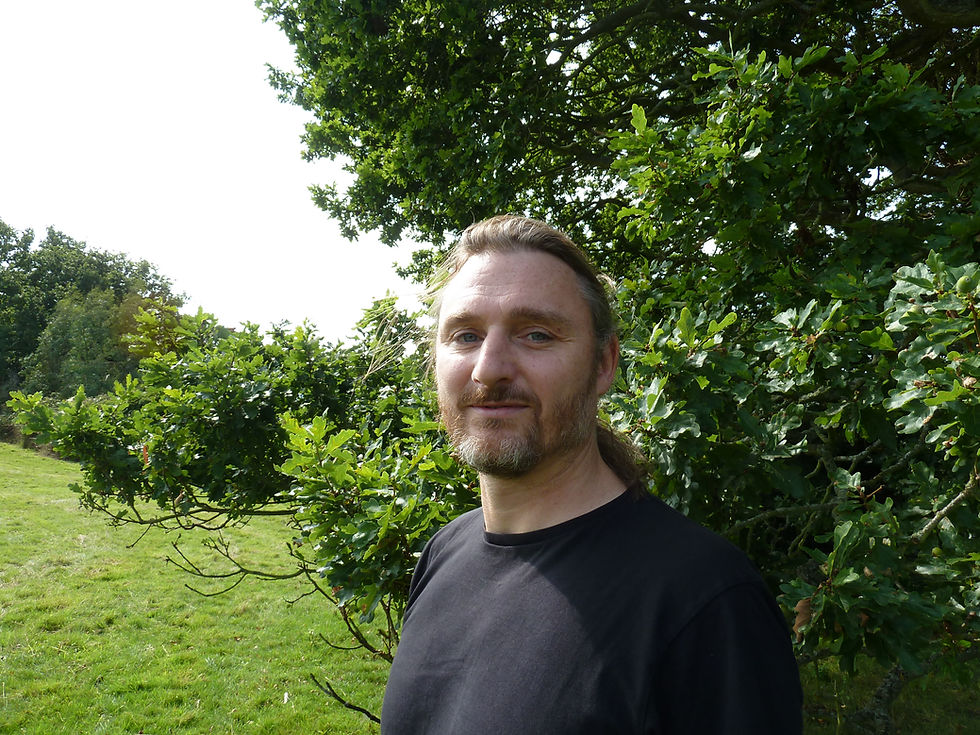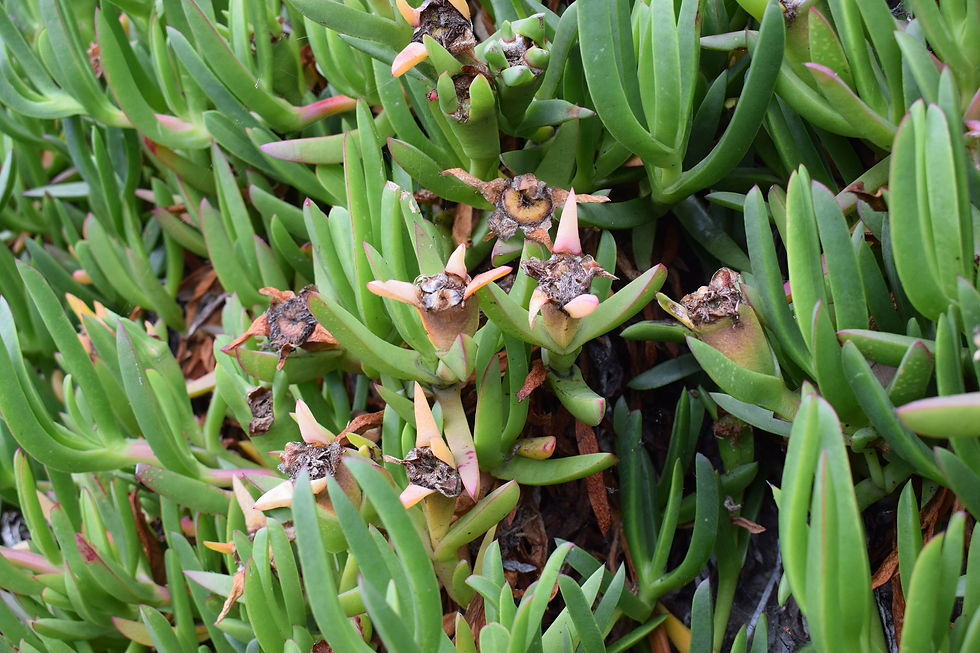Q&A with Sussex forager Geoff Dann
- Nick Mosley
- Dec 28, 2021
- 3 min read

Your name, age and a bit of background about you
Geoff Dann, 53. I took a break from a software career in my mid-thirties, and studied philosophy at Sussex University (2005-2008). I started teaching people to forage – for fungi – in 2009 because at the time that was the only way I had to earn money. I began work on a comprehensive illustrated book on fungi foraging shortly after, which was published in 2016 and has sold 20,000 copies since then. It has taken me another six years to research, write, and this time independently publish, the plant and seaweed sequel.
How and when did you become interested in foraging?
In my late teens I went hunting for magic mushrooms, and on failing to find any in my first autumn, I started learning which fungi I could eat instead. It quickly became addictive.
Is Sussex a particularly good region for foraging?
That depends on what sort of foraging you are talking about. For example, West Sussex is poor for seaweed foraging, because seaweeds need rocks and there aren't any, but East Sussex is better, on the rocky beaches where the South Downs meet the sea. The High Weald is particularly good for fungi. Most of Sussex is fairly typical English countryside, which is good for foraging but not exceptionally so.
What are the key safety, legal and general countryside rules and regulations people should be aware of before foraging?
Rule #1: don't eat anything unless you are sufficiently certain of its identification that you know it cannot cause you serious harm.
Rule #2: don't take more than you need.
Rule #3: For personal use, you can take wild-growing fruit, fungi and foliage, unless there are byelaws specifically preventing this or the landowner has prohibited it. Uprooting stuff is illegal – you must not break the soil surface. The moment it is for profit – you have an intention to sell whatever you are picking – then you either need the landowner's permission, or it is theft.
Do you work with local restaurants to supply locally foraged food?
No. I decided early in my foraging career that that would be too much of a legal and ethical minefield.

What is perhaps the most unusual plant that can be foraged in Sussex?
One you mustn't forage for. Spiked Rampion is highly regarded as an edible wild plant in parts of continental Europe, but in the UK it is protected and restricted to Sussex, with 70% of the UK population inhabiting a single roadside verge. It is very closely related to the bellflowers, though it looks nothing like them. The whole group were historically known as “rampions”, and people ate their roots as well as the flowers and young foliage.
One that you can forage for is Hottentot Fig (aka Ice Plant). It's a succulent foreign invader that particular likes sea cliffs, and has beautiful pink or yellow flowers. Most people don't even notice that these are followed by fruits, which look like dying bits on the end of leaves. These can be eaten raw, once peeled, and have the texture of figs and taste like slightly salty over-ripe bananas. I made some into a preserve earlier this year but then couldn't figure out what to do with it – it didn't work on toast. Then one evening I was having a very hot curry and ran out of mango chutney and it turned out to be a perfect substitute.

Where did the idea for your book come from?
I had already written a successful book on fungi foraging, so a book on plant and seaweed foraging was the obvious next step.
What can people expect from the book?
A lot of information and photos. It contains absolutely everything a forager needs to know about the plants, seaweeds, lichens, cyanobacteria and slime moulds of the British Isles. It includes edible ornamental plants, and all of the important poisonous species too. It's also the first foraging book to be collapse-aware. There's a sixteen page introductory section all about how foraging relates to human history and culture, and what role it might play in a future that looks increasingly grim.

Where can people buy a copy?
You can buy directly from my website – www.geoffdann.co.uk – or from City Books in Hove who have a limited amount of pre-release stock. I’ll be doing a book signing at City Books on Thursday 13 January.
Anything else you’d like to share?
I have been running foraging events for the last ten years. I have some spring plant foraging and coastal foraging events planned in April and May, but after that I am planning to move away from south-east England, in search of a more self-sufficient, off-grid lifestyle somewhere in south-west Wales.





Comments